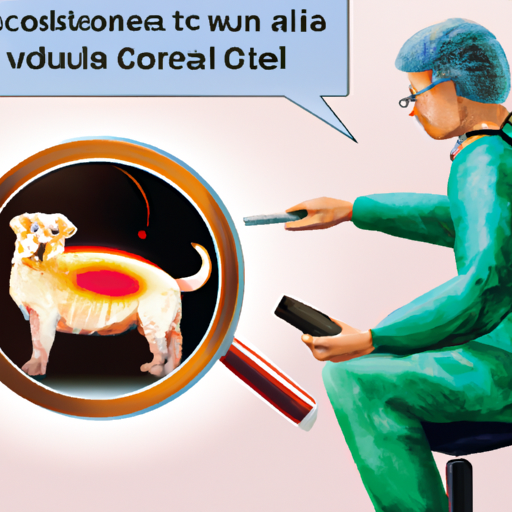Understanding Colitis in Dogs
First of all, it’s crucial to understand what colitis is. In simple terms, colitis is an inflammation of the colon, also known as the large intestine. Your beloved pet may exhibit symptoms such as frequent, loose stools, blood or mucus in the stool, and increased urgency to defecate. Colitis can be acute, happening suddenly and resolving with treatment, or it can be chronic, persisting over a long period and requiring ongoing management.
Causes of Colitis
Identifying the cause of your dog’s colitis is the first step to effective treatment. Common causes include:
- Dietary indiscretion (eating something they shouldn’t)
- Food allergies or intolerances
- Infections (bacterial, viral, or parasitic)
- Inflammatory bowel disease
- Certain types of cancer
Treatment Options
Once the cause has been identified, treatment can begin. The following is a general approach to treating colitis in dogs:
-
Dietary Changes: If a food allergy or intolerance is suspected, your vet may recommend a diet change. This could involve a hypoallergenic diet or a diet with novel protein and carbohydrate sources that your dog has not been exposed to before.
-
Medications: Depending on the cause, your vet may prescribe medications like antibiotics, anti-inflammatory drugs, or dewormers.
-
Supportive Care: This can include fluid therapy if your dog is dehydrated, or probiotics to help restore a healthy gut microbiota.
Long-Term Management
For dogs with chronic colitis, long-term management may be required. This typically involves a combination of dietary management and medications as needed. Regular check-ups with your vet will also be necessary to monitor your dog’s condition and adjust the treatment plan as necessary.
Preventive Measures
While not all cases of colitis can be prevented, there are steps you can take to reduce your dog’s risk:
- Ensure your dog is on a balanced, high-quality diet
- Keep your dog’s environment clean and free from parasites
- Avoid sudden dietary changes
- Regular vet check-ups
Frequently Asked Questions
Q: Can colitis in dogs be cured?
A: Acute colitis can often be resolved with treatment. However, chronic colitis is typically a lifelong condition that requires ongoing management.
Q: Is colitis in dogs contagious?
A: No, colitis is not contagious. However, if it’s caused by an infectious agent such as a parasite, that could potentially be passed to other animals.
Q: How long does it take for a dog to recover from colitis?
A: This can vary widely depending on the cause and severity of the colitis. In some cases, improvement may be seen within a few days of starting treatment, while in others, it may take several weeks.
Q: Can my dog live a normal life with colitis?
A: Yes, with appropriate treatment and management, most dogs with colitis can lead a normal, happy life.
Always remember, your vet is your best resource when it comes to your pet’s health. If you suspect your dog has colitis, don’t hesitate to seek veterinary care.



